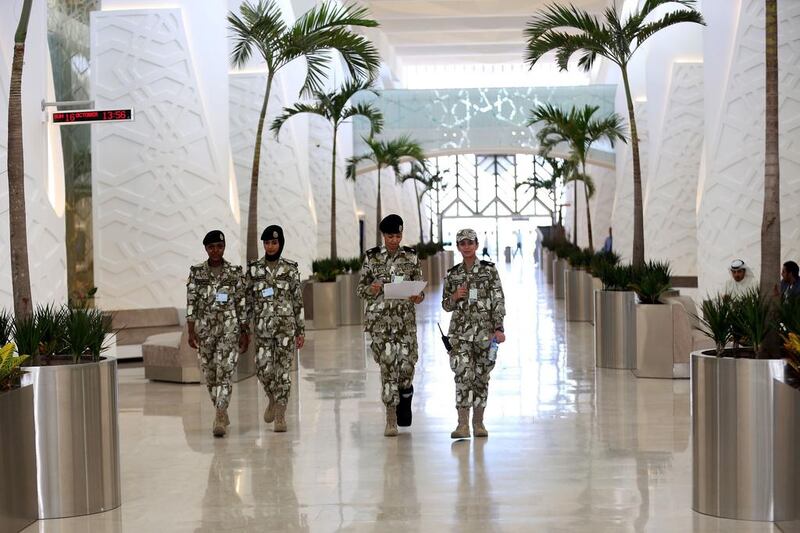KUWAIT CITY // Kuwait will hold snap elections on November 26, the government said on Monday a day after the parliament was dissolved following a dispute over hiking petrol prices.
Ruling emir Sheikh Sabah Al Ahmad Al Sabah ordered the dissolution of parliament on Sunday, saying “security challenges” in the region could best be addressed by consulting the popular will.
The move to dissolve parliament, a year before its term expires, came after lawmakers filed three requests to question ministers over a cabinet decision to raise petrol prices and alleged financial violations.
Former parliament speaker Marzouq Al-Ghanim welcomed the decision.
“Heading to the ballot box is [a] genuine democratic process,” he said, according to the state-run Kuna news agency. “The Kuwaiti people will dictate who would represent them at this critical juncture.”
Like other Gulf Arab states, Kuwait adopted a number of austerity measures to face the slump in oil revenues including raising fuel and power prices.
Registration for candidates wishing to run in election will open after the publication of the decree in the official gazette, expected in the coming few days.
The election is expected to see heated contests, mainly as many opposition groups have decided to participate after boycotting the previous two polls in protest against changing the voting system.
The cabinet also accepted the resignation of three ministers who want to run in the polls, according Kuna.
Kuwait enjoyed relative stability in the past three years following almost seven years of political turmoil due to disputes between lawmakers, mainly from the opposition, and the government.
This is the seventh time a Kuwaiti parliament has been dissolved either by the emir or by courts since 2006.
It was the first Gulf state to adopt parliamentary democracy in 1962.
Parliament enjoys legislative and monitoring powers but the government is formed from outside elected MPs and is headed by a senior member of the Al Sabah ruling family.
The rise of ISIL and the drop in global oil prices has caused growing concerns in Kuwait.
An ISIL-claimed suicide bombing in 2015 targeting a Shiite mosque in Kuwait City killed 27 people and wounded scores. On October 8, an Egyptian driving a rubbish lorry loaded with explosives and ISIL papers rammed into a lorry carrying five US soldiers in Kuwait, wounding only himself in the attack. Mr Al-Ghanim said on Saturday that police broke up a Hizbollah cell with a massive underground ammunition cache in recent months.
The Opec member also faces economic challenges, as the price of oil has halved from heights of over US$100 (Dh367) a barrel in the summer of 2014.
Government-subsidised gasoline prices have been raised and other benefits have been cut, leading to growing dissent.
* Agence France-Presse, Associated Press and Reuters





